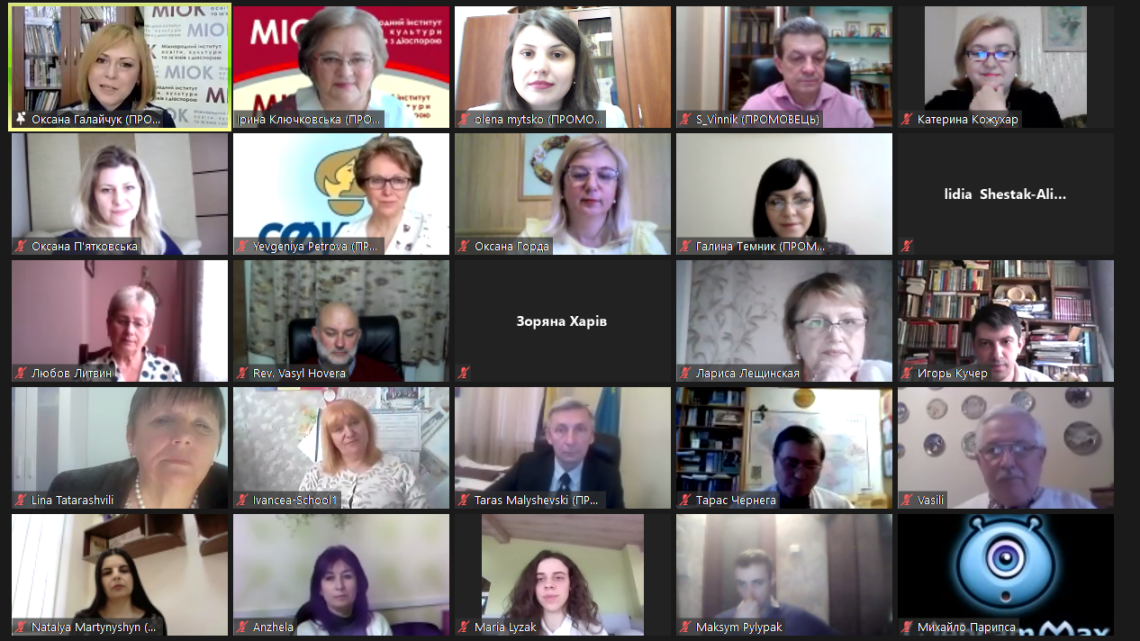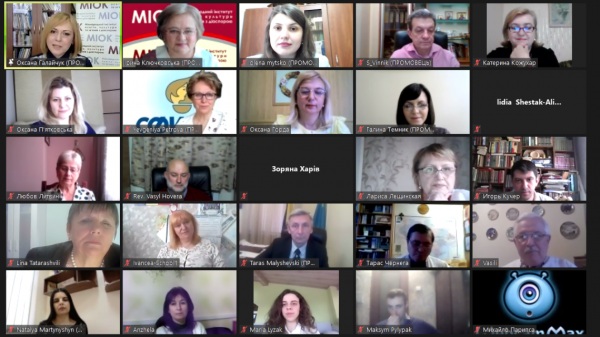On March 19, 2021, the International Institute of Education, Culture and Diaspora Relations held an online meeting «On the day when the storks return, IECDR invites Ukrainians of the Eastern Diaspora to a friendly conversation».
Representatives of Ukrainian communities and schools of Ukrainian Studies in Azerbaijan, Belarus, Armenia, Georgia, Kazakhstan, Kyrgyzstan, Moldova, Russia, Tajikistan, Turkmenistan, and Uzbekistan were invited to the event.
The meeting, which took place after a long pause, turned out to be extremely important to both IECDR and our compatriots from the post-Soviet countries.
Due to the lack of interest on the part of Ukraine to life and activity of Ukrainian communities of the Eastern Diaspora, deepening assimilation processes and, as a result, indifference to public activities of Ukrainians in the post-Soviet countries, the participants of the meeting, organized by IECDR, suggested:
- to create a communication platform for representatives of NGOs of the Eastern Diaspora for regular communication and exchange of experience;
- to introduce upskilling courses, master classes and trainings for teachers of Ukrainian studies schools, art courses and NGO leaders;
- to organize business trips of teachers and cultural workers from Ukraine to revive Ukrainian life in the post-Soviet countries;
- to organize trips for young people to Ukraine, in particular to Kyiv, Kaniv and Lviv;
- to develop a state program regarding the return of Ukrainians from abroad;
- to simplify the procedure for obtaining Ukrainian citizenship for Ukrainian public activists abroad.
During the event, IECDR received words of appreciation and requests to organize such meetings in the future. Such number of responses showed the great need of our compatriots from the Eastern Diaspora in communication and cooperation with Ukraine.
The guests of the meeting shared their success stories, problems and hopes. Extremely interesting and informative were the speeches of Fr. Vasyl Hovera (Kazakhstan), Lina Tatarashvishi (Georgia) and Kateryna Kozhukhar (Moldova). Each of them briefly presented the activities of their organizations, and also expressed their wishes to their compatriots in Ukraine.
They were actively supported by other participants. There were made very clear and concrete proposals to the Ukrainian government, starting with the needs of schooling and ending with the introduction of government programs to support the Ukrainian diaspora of the region.

